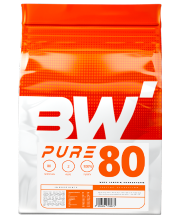The Beginners Guide to Creatine
What is creatine?
Creatine is one of the most popular bodybuilding supplements on the market and is used by bodybuilders, weight trainers, rugby players and other sportsmen and women alike. Creatine is a compound that’s naturally produced in our bodies to replenish energy. It is created in the liver, kidneys and pancreas and then secreted into blood for transport to muscle cells and other tissues. Chemically, creatine is formed from the combination of amino acids arginine, methionine and glycine.
Does creatine work?
Creatine is probably the most scientifically studied bodybuilding supplement ever, with strong evidence demonstrating that it helps improve sports performance. In addition to this, there are countless anecdotal reports from users claiming that it has improved their strength, recovery and performance in workouts.
Click here to see our creatine supplements – Creatine Supplements
What does creatine do?
Creatine has a number of major functions as a sports supplement. All of these functions revolve around its use as an energy replenishment supplement through via formation of the creatine phosphate (CP or phosphocreatine) molecule.
Creatine replenishes ATP
ATP is the molecule which when broken down releases energy for the muscle to contract. When used up, ATP needs to be replenished by re-acquiring phosphates. CP acts as a phosphate transporter. CP gives up its phosphate to ATP freeing creatine to form the bi-product creatinine for excretion.
Many studies have demonstrated that the more creatine that is present in muscle cells (up to a maximum storage level), the more efficiently ATP can be replenished and hence more ATP is available for energy. The richest food source of creatine is meat and fish, but it has been found that muscles can store far more CP than is possible to obtain from normal food (Hultman, et al 1996), so by supplementing with creatine monohydrate (or more recent versions of creatine like creatine gluconate, magnesium creatine chelate, creatine ethyl ester or Kre-Alkalyn etc.) you can maximise stores more effectively. Thus creatine allows you to have more energy to help lift heavier weights, train harder and at a higher intensity.
Creatine stimulates protein synthesis
It has been demonstrated that creatine may also promote muscle growth by stimulating protein synthesis in two ways. Firstly, is from the increased work you are able to do as a result of its energy replenishment effects. Secondly is that the more CP that is stored in muscle, the more water is drawn into muscle making it fuller, thicker and stronger. With more CP and water in muscle, volume increases, and your muscle cells are 'volumised' or 'super-hydrated'. A volumised muscle helps to trigger protein synthesis, minimise protein breakdown and increase glycogen synthesis (Haussinger 1996; 1996). If a muscle is then trained properly, this could lead to enhanced muscle growth. The muscle 'pump' experienced when using creatine is reported to be much more intense, and this is as a result of the cell volumising effect.
Click here to see our pump & nitric oxide supplements – Pump and Nitric Oxide Supplements
Creatine may buffer lactic acid
Creatine may act as a lactic acid buffer and improve exercise recovery time. Lactic acid is a bi-product from anaerobic (without oxygen) exercise like such as weight training or other explosive activities. Lactic acid is responsible for the 'burning' sensation when the muscle becomes fatigued. When you cannot train anymore, it is due to you either having run out of energy or a build up of lactic acid. Creatine may act as a buffer for this lactic acid, which helps to delay the onset of fatigue. This makes it extremely useful for bodybuilders, weight lifters, boxers, MMA fighters and other sports people engaged in sports that require explosive movement.
Creatine increases body weight
Most users experience notable weight increases when they commence a course of creatine, up to six or seven pounds (about three kilograms), especially the first time they use it. Most of this weight gain is from the cell volumising effect discussed above which is not permanent.
However, some of this weight gain is from an increase in muscle tissue (not just water) due to the positive effects of creatine on growth. Studies have shown that creatine supplemented subjects significantly gained more lean body mass than non-creatine supplemented individuals, but total body water was no different from before and after the study (Kreider; et al 1995; 1996). You should notice the muscle size gains from creatine fairly rapidly, most of them occurring within the first month of use.
What is creatine loading and should I do it?
Creatine loading is when you take a high dose of creatine for the first few days, then follow this with a maintenance dose for a few weeks after (or as long as your creatine cycle lasts). Some studies have shown that this achieves a higher concentration of muscle creatine then by simply taking a maintenance dose alone (Greenhaff, et al 1993). There are a number of loading regimens, but the following one seems to be optimal and most cost effective:
re
Theoretical Creatine Cycle:
Days 1-5: 10g’s per day, 5g before and 5g after workouts
Days 6 On: 5g’s per day, immediately after workout, ideally with a carb rich drink or post-workout shake
Click here to see our post-workout shakes – Post Workout Supplements
Should you creatine load?
This is very controversial subject as there are researchers like Greenhaff, et al (1993), who have demonstrated that’s beneficial to load, and others who have shown no benefit. In addition to this, loading has only been studied with basic creatine monohydrate. Several manufacturers now produce more advanced creatine blends like Warrior Cyclic, Warrior Creatine, or Pure Creatine Gluconate that require no loading.
In our opinion, it is worth loading creatine monohydrate for the first 5 days (as per the cycle above) as you will get the benefits of creatine sooner, and creatine monohydrate is so cheap nowadays (e.g. Creatine Monohydrate) that the added expense of an extra 5g’s per day for 5 days is very low. By loading when using monohydrate, you may feel the gains earlier than simply sticking to a maintenance dosage.
Should you cycle creatine?
There is no evidence that cycling creatine is any better, or produces any greater results than simply using it constantly. Anecdotally, some users report better gains from cycling.
In our opinion, you should cycle creatine for periods of 8-12 weeks with 2 weeks off between cycles. The reason for this is just so you can “feel the benefits” of the creatine when you come back onto it, after each break in the cycle. If you’re on it all the time, how would you know what it’s doing?
When during the day should I take creatine?
Creatine can be consumed at any time of the day as it is stored within the cells. However, many experts, manufacturers and users recommend taking it immediately post workout, due to potentially better uptake to cells.
In our opinion, you should take it immediately post workout, in a carb rich post-workout shake (if using creatine monohydrate), or else follow the manufacturer’s instructions if it’s a more advanced creatine blend like Gaspari SizeOn, BSN Cellmass etc.
What’s the best creatine supplement?
Creatine monohydrate is the form of creatine that is most commonly sold - it is virtually tasteless and dissolves quite well in water or other drinks. However, over recent years many new forms of creatine have hit the market such as creatine gluconate, creatine ethyl ester, creatine magnesium chelate, creatine gluconate, kre-alkalyn and more.
In addition to this there are numerous creatine “blends” that exist today, with added uptake enhancers, cell volumisers, and sometimes even electrolyte forumlas to transform them from a simple creatine supplement to something that’s much more comprehensive.
In our opinion, there is no easy answer to this as personally we have found that everyone in the office tends to prefer a different product. This may be due to individual differences between users, and so the best course of action is to try the supplement that appeals most to you.
Some good choices are:
How long does creatine take to work?
You should notice an increase in weight during the first 4-9 days. Your muscles should also feel fuller, with the lifts you did the week before feeling slightly easier to complete. Most size and strength gains from creatine supplements come within the first month of use (Kreider; et al 1995).
Reduce alcohol whilst on cycle!
A small amount of alcohol whilst using creatine is ok, as long as it is kept to weekends or limited in quantity. Alcohol is a mild diuretic at higher intakes, so it will counter some of the benefits of creatine supplementation as whilst the creatine is super-hydrating your muscle cells, the alcohol would be working to dehydrate them!
What are the side effects of creatine?
In short, very few. Creatine monohydrate has been shown in numerous studies to be very safe, even in large quantities (Robinson, et al 2000). However, some side effects you may notice are:
- mild nausea for a short while
- muscle cramps
- headaches (likely due to dehydration from low water intake – ensure you drink plenty of water whilst on cycle).
Creatine and the kidneys
Creatinine levels are often measured to assess overall kidney function and health. Creatine supplementation raises creatinine levels, although it is completely non-toxic to the kidneys (Robinson, et al 2000). If you are supplementing with creatine and your doctor is running some blood tests, you need to inform him that you’re using creatine otherwise this could give false results. In short, creatine use does not negatively effect the kidneys however it might give misleading results in blood tests.
Is there a minimum age for creatine users?
Although creatine is a safe supplement, we do not recommend it below the age of 18 as there is usually so much that can be done in terms of optimising diet, training and rest at that time. The most important supplement is probably protein powder to ensure you’re taking in enough protein from quality sources, to ensure recovery between workouts is optimal.
Click here for our protein powders section – Protein Powder Supplements

